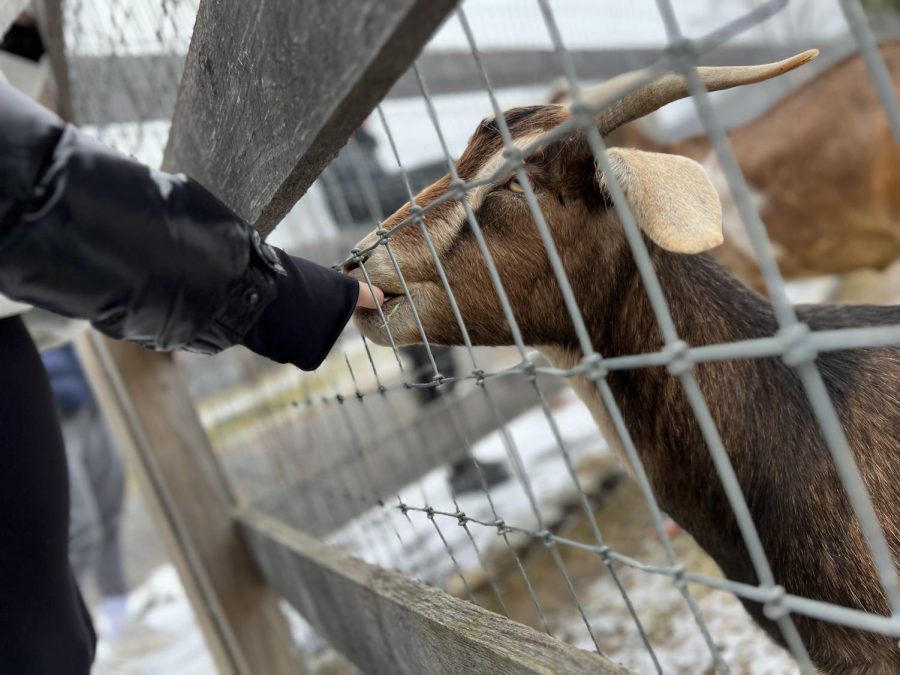Students Embrace Plant-Based Nutrition with Eat Your Veggies
Students visited Safe Haven Farm Sanctuary to see the various refugeed animals during the Eat Your Veggies course
February 22, 2023
“Eat Your Veggies” was one of the many Wintermission courses in the school’s first schoolwide interdisciplinary program, running from January 24-27, taking the place of regularly-scheduled classes. The course, led by Stella Carey and James Minio, discussed the reasoning and rationale behind moving towards a plant-based diet.
“I wanted to do this course because I am very concerned about climate change and I think that diet is a way individuals can make a really powerful impact with pretty minimal changes. So I thought that plant-based eating was an excellent opportunity to be a ‘power for good,’” Carey said.
Although the course was focused on the importance of a plant-based diet, the class was majority meat-eaters, with only a few vegetarians and zero vegans. The class was not pushing or forcing a vegan onto the participants, but instead openly discussing the potential benefits of one.
Students publicly shared their reasons for why they agree or disagree with plant-based rhetoric and sentiment, which created a safe environment for students to grapple with the different aspects to consider when looking at their current diet compared to a plant-forward diet. Mia Vitale, a sophomore who took the course, said that she appreciates the non-pushy environment of the class. “As a pescatarian, I was worried that the course would be very forcing of veganism onto the class; however, that’s not at all what it was like,” she said.
The course was also highly engaging, with visits from dietitians and trips to an animal sanctuary. “I also really love animals, I love cooking and I love eating, so all of those things were able to fit into the course activities in a way that seemed like it would make for a fun few days,” Carey said. The course’s engaging nature was not a deliberate plan, but rather a product of the flexible and adaptable approach of the teachers. “When we were first designing the course I felt like we were given a blank slate, that is, we could really design any activities we could think of, so I just went with what sounded fun. For example, going out to eat at a restaurant: I had never thought of doing something like that as part of a class before, but it seemed to fit with our class goals so we went with it!” Carey said.




